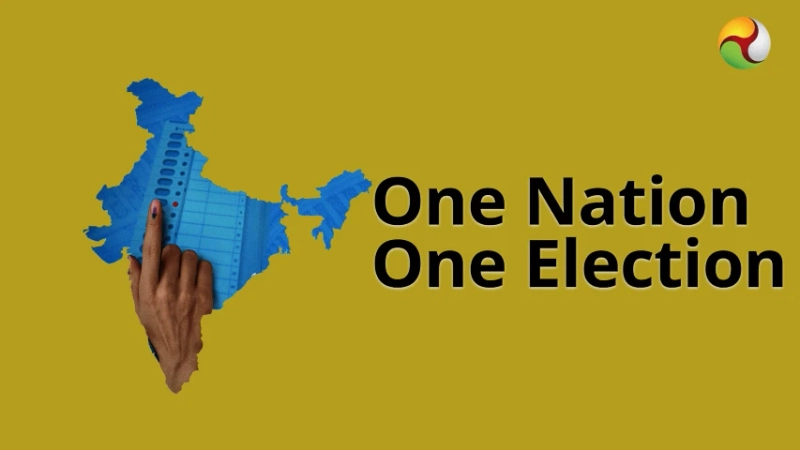"One Nation One Election" is a proposal that has garnered significant attention and debate in India's political landscape. This concept revolves around the idea of synchronizing the schedules of both state and national elections, essentially allowing the entire country to vote for their state and central governments simultaneously. The objective behind this proposal is to streamline and rationalize the electoral process, bringing several advantages and challenges to the forefront of India's political discourse.
Advantages of One Nation One Election:
Cost Savings: Holding multiple elections at different times incurs substantial financial burdens on both the government and political parties. Coordinating elections at the state and national levels can significantly reduce these costs.Efficient Governance: Frequent elections can disrupt the policy-making process, as the Model Code of Conduct comes into effect during election periods. Simultaneous elections would enable a more stable and continuous governance environment.
Voter Engagement: Consolidating elections could encourage higher voter turnout, as voters would only need to go to the polls once in a few years rather than multiple times annually.
Reduced Electoral Fatigue: Back-to-back elections can lead to voter fatigue. Having one election cycle every five years may reduce this exhaustion and encourage a more informed and engaged electorate.
Reduced Corruption: With frequent elections come frequent election-related expenditures. Streamlining the process can help reduce corrupt practices related to campaign funding.
Challenges and Concerns:
Constitutional Hurdles: Implementing One Nation One Election requires significant changes to India's constitution, which mandates that state and national elections are held separately.Logistical Complexities: Coordinating such a massive election across the country poses logistical challenges, from voter registration to polling station management.
Loss of Regional Focus: Critics argue that this proposal could undermine the significance of regional issues and parties. State elections often focus on local concerns, which may be overshadowed by national politics in a synchronized system.
Political Opposition: The proposal has faced resistance from various political parties, who fear that it might favor larger, national parties at the expense of regional ones.
Election Funding: Funding for a simultaneous election cycle would be a major challenge. Parties and candidates would need substantial resources to campaign effectively at both state and national levels.
The debate surrounding One Nation One Election continues to be a hot topic in Indian politics. It is a concept that carries both potential benefits and significant complexities, and the path to its implementation would require constitutional amendments, broad political consensus, and careful planning to address logistical, financial, and political concerns. As India grapples with the question of electoral reform, the concept of synchronized elections remains an important topic for discussion and consideration in the nation's democratic evolution.


